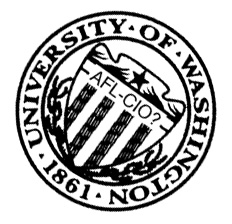CHILD LABOR. There has been a fair amount of publicity on child labor in the Pakistani soccer-ball industry and the Asian rug industry, but the January/February issue of Multinational Monitor details an array of child labor conditions around the world: In Colombia, boys work in coal mines, slipping through small dusty tunnels as they pick and haul sacks of coal. In Cambodia, children are employed in brick factories, where they generally work barehanded and barefooted, their limbs often injured by bricks and machinery. The slave trade of child prostitutes is especially prevalent in Southeast Asia and India, and exists in the West as well. Children make up a third of the sugar cane cutters in some areas in Brazil, and are involved in over 40 percent of the work related accidents, according to UNICEF. Millions of children in Nepal and India work as bonded laborers to pay off debts of the parents.
WASHINGTON APPLES. The Teamsters Union has begun a major organizing drive among 11,000 warehouse workers in the apple industry in Eastern Washington, and is working closely with the United Farm Workers, which has begun a drive to organize 25,000 orchard workers in the state. Most warehouse workers are full-time permanent employees with strong ties to the community. About two-thirds are of Mexican descent. They earn on average $11,000 per year. Wages paid to warehouse workers account for only about 4.5 percent of the cost of a red delicious. For information call Teamsters/United for Change 206/782-9130.
WASHINGTON BUSSES. Drivers for Paratransit Services Inc. in Clallam and Jefferson counties have signed interest cards asking to be represented by the Amalgamated Transit Union. Despite management resistance, voting will be conducted by mail, a practice now favored by the National Labor Relations Board. (587 News Review)
SOUND CURRENCY. Sound Exchange in Olympia has started its own local currency called Sound Hours, based on New York's Ithaca Hours. Any of the roughly 300 members of Sound Hours can exchange services with each other at the rate of $10 per hour, payable in Sound Hour paper bills. In the first three months of operation, 1200 hours of work have been bartered under this system. For info or to join write Sound Exchange, 120 State Ave NE #1444, Olympia WA 98501.
MICROBREWERS ORGANIZE. A majority of brewers at the Fish Brewing Company in Olympia have organized and presented a contract proposal to management and are in negotiation. The Fish Brewery Workers Association is an independent union but has worked in consultation with the IWW. (Works In Progress)
GENERAL ELECTRIC. Chairman John F. Welch summarily rejected the three top bargaining goals of unions representing 46,000 GE workers, and has dared the workers to strike, saying that GE is the "best prepared company in the world to take a strike." The GE unions are planning a wide ranging campaign using corporate and investment strategies. GE had a whopping $7 billion profit in 1996. (America@work)
VIETNAM. Vietnamese newspapers are reporting that Nike contractors are not paying minimum wage to many workers, according to the Multinational Monitor. Nike is more vulnerable in Vietnam, because the press there has been unexpectedly critical of harsh working conditions in foreign-run factories. In Indonesia and China, the regimes have not permitted negative news reports.
OREGON. Anti-labor "right-to-work" bills have been introduced into the state legislature. They would prohibit public employee unions from collecting dues via payroll deduction, and would eliminate "fair share" agreements, which allow unions to collect a payment from workers who do not choose to join the union, but who are still represented by collective bargaining. Right-to-work bills were recently defeated in New Hampshire and Montana after workers rallied. Meanwhile in Washington state, the Labor Council has identified 54 bills that would have a negative impact on workers. (Northwest Labor Press)
 |
 |
 |
 |
 |
Contents this page were published in the May/June, 1997 edition of the Washington Free Press.
WFP, 1463 E. Republican #178, Seattle, WA -USA, 98112. -- WAfreepress@gmail.com
Copyright © 1997 WFP Collective, Inc.

 University Unions
University Unions